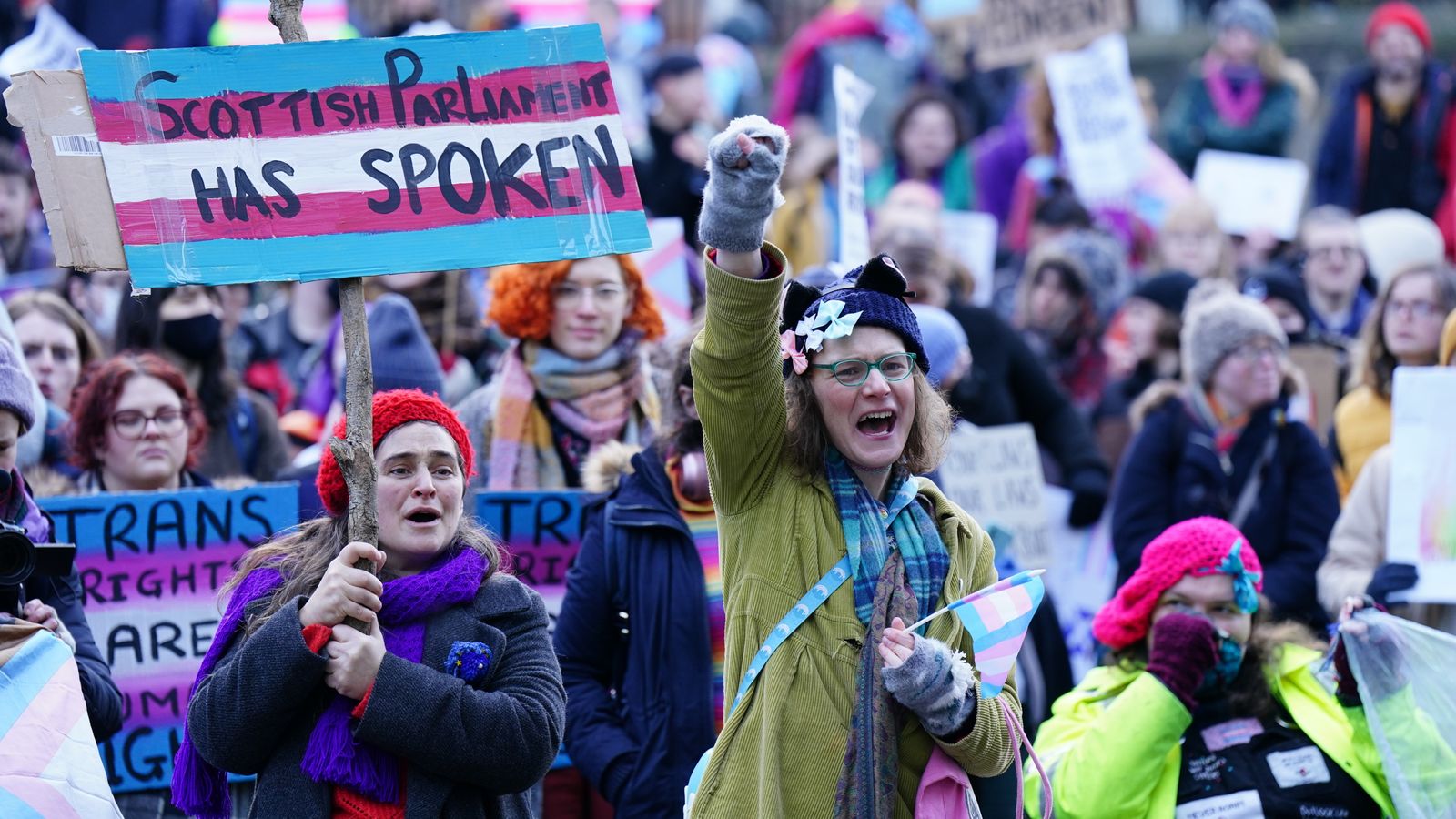Holyrood will take no further legal action against Westminster over its controversial gender reform bill, the Scottish government has confirmed.
The move ends the bill’s current chances of becoming law.
It comes after Scotland’s highest civil court ruled earlier this month that the UK government acted lawfully in blocking the bill from receiving royal assent.
In a statement to MSPs at Holyrood on Wednesday, social justice secretary Shirley-Anne Somerville apologised after the decision not to appeal the ruling was covered by the media ahead of being announced in the Scottish parliament.
Ms Somerville said it will not be withdrawn, adding that the Scottish government was open to working with the UK government to compromise on the bill.
She also hinted at potentially working with a future Labour government.
Ms Somerville said: “Due to the intransigence of the current UK government, I’m confident that any repetition of our offer to seek compromise would again be rebuffed.
More than 100 people lose jobs days before Christmas as Virgin Hotels Glasgow closes just months after opening
Beavers return to Cairngorms National Park in Scotland after 400 years
Scotland drops legal battle for reforms which would have made it easier to change gender
“We will therefore focus on working with an incoming UK government which we hope will have more respect for devolution and is willing to work together, even when sometimes we disagree.”
The gender reform bill battle
The Gender Recognition Reform (Scotland) Bill was passed by MSPs just before Christmas last year.
It aimed to simplify the process for trans people from the age of 16 to obtain a gender recognition certificate (GRC) and officially change their legally-recognised sex.
Critics argued the proposals undermined women’s rights and single-sex spaces.
The bill became a constitutional dispute in January when the UK government took the unprecedented step of using a Section 35 order to stop the bill from receiving royal assent and becoming law.
Scottish Secretary Alister Jack had argued the bill clashed with UK-wide equality laws and differing systems of gender recognition north and south of the border would create “significant complications”.
The Scottish government launched a legal challenge and a three-day hearing took place at the Court of Session in Edinburgh in September.
Earlier this month, Lady Haldane delivered her judgment and ruled the UK government’s veto was lawful.
Although now announcing no more action will be taken, the Scottish government would have been able to appeal further through the Scottish courts, and ultimately to the Supreme Court in London.
Read more:
Why is the bill controversial?
Be the first to get Breaking News
Install the Sky News app for free
Ms Somerville accepted that “many trans people will be disappointed” by the decision not to appeal the Court of Session’s ruling.
She said: “To them, I say this: The Scottish government will never waver in our commitment to your rights.
“You deserve to be respected, included and supported.
“You are not a threat and you will always be able to live your lives free from prejudice and abuse in the type of Scotland we want to see.
“We will continue to work towards a society that is equal and fair and where people can live as they are, just as we will continue to protect the democratic pillars of this, Scotland’s parliament.”






















